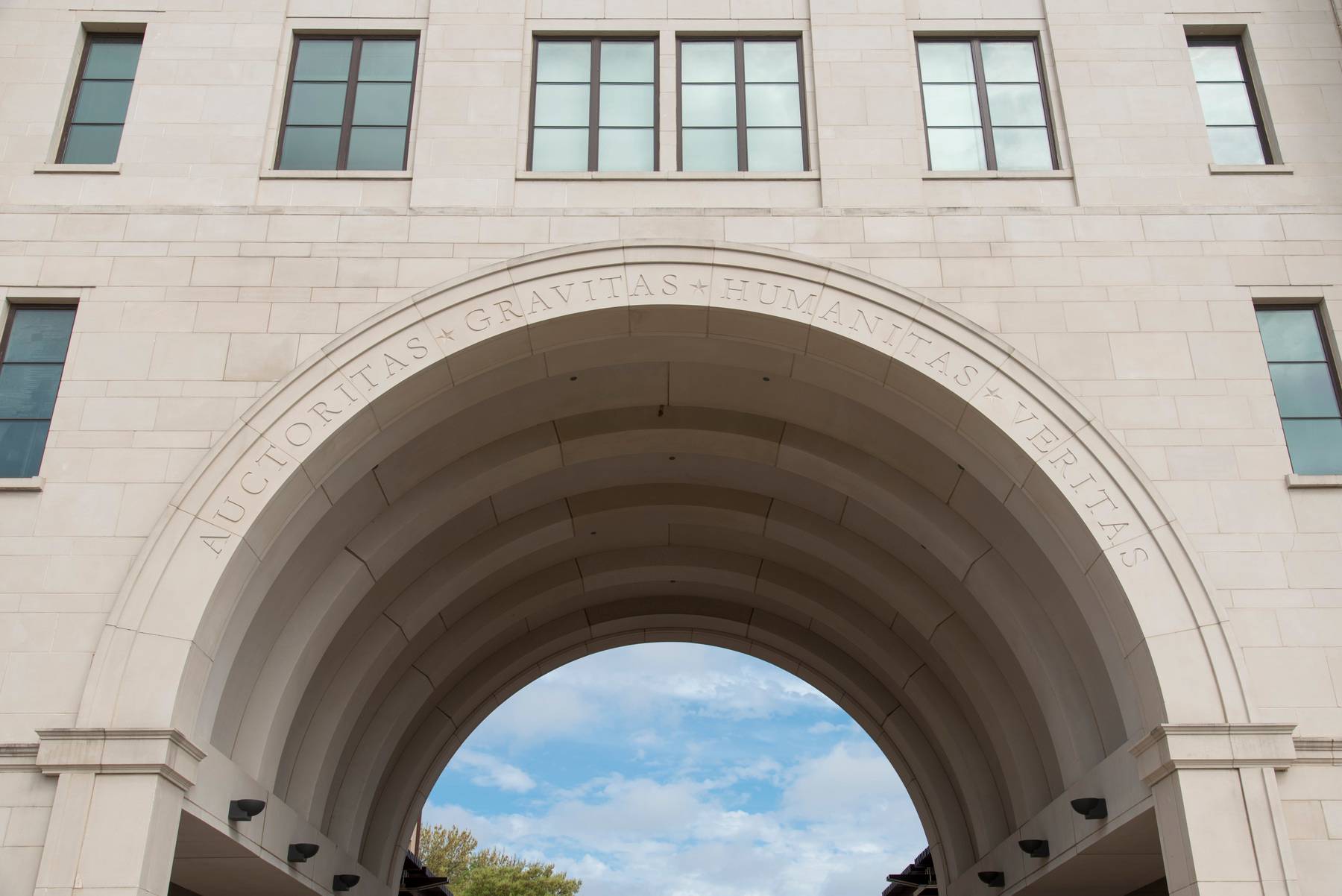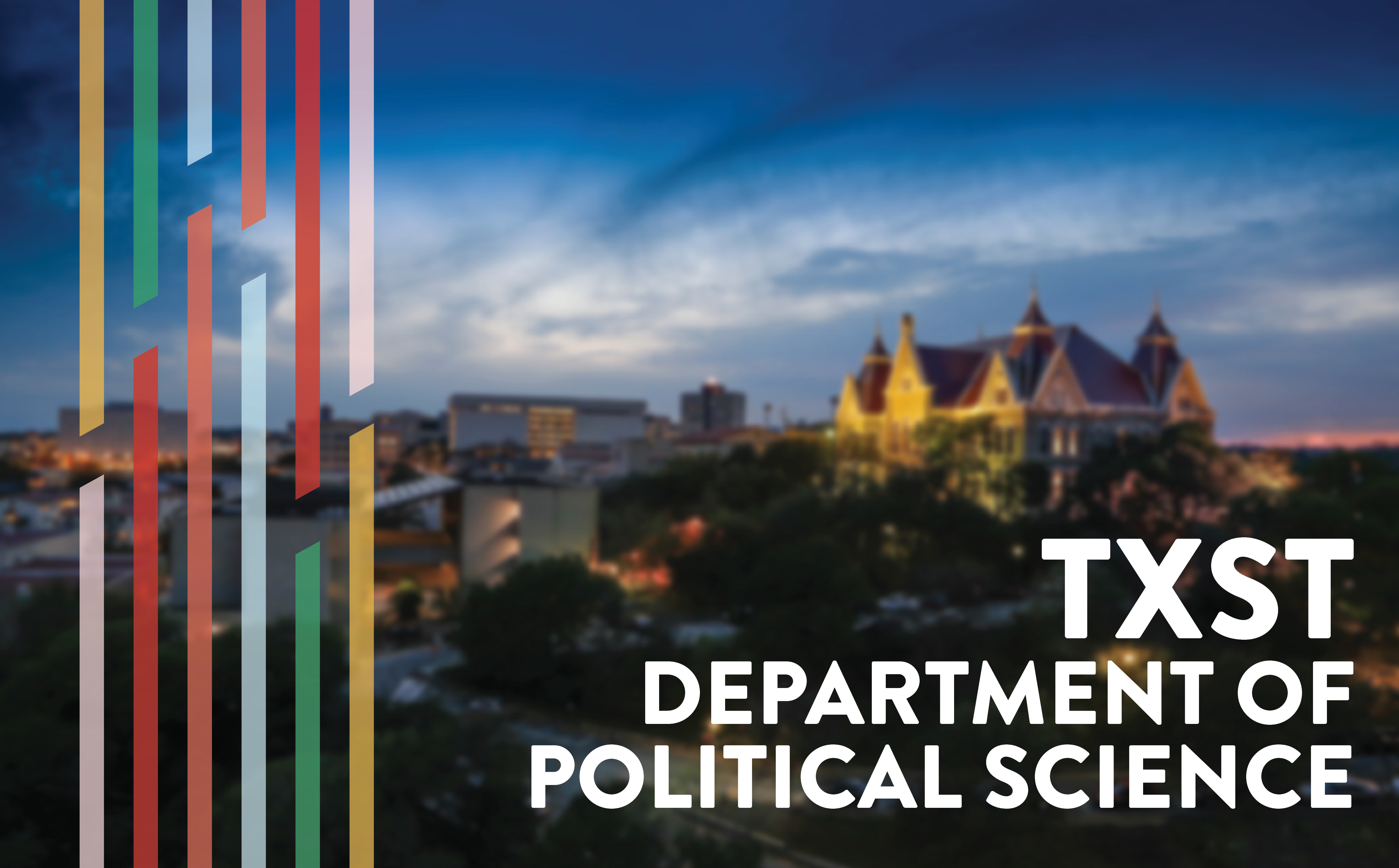Political science is the study of constitutions, law, and government, at the local, national, and international levels, and of those things that influence the exercise of political power, such as individual interests and attitudes, norms, institutions, and culture.
What is Political Science?
Override Requests
We are not granting any more override requests as of February 4, 2026, 12:00PM. Thank you.

SWIPS Off to a Fast Start


Over 30 students attended Supporting Women in Political Science’s first meeting of the semester on January 27. Officers provided departmental updates, including detailed information about available scholarships, their requirements, and upcoming deadlines. They also reviewed their calendar for the next month, sharing important information about upcoming tabling events, meetings, and their Black History Month event.
At the February 10 meeting, officers shared departmental updates, including information on available scholarships, academic journals, an international mediation newsletter, and program publications such as Political Science’s Alumni NewsWire and Public Administration’s Public Matters. Members were also encouraged to attend the upcoming Political Science Alumni Night and were given information about volunteering with SWIPS for Bobcat Build.
The meeting featured a guest presentation from Ms. Shekinah Wu of Career Services, who provided guidance on career paths related to political science and public administration, offered résumé feedback, and shared tips for interviews, career fairs, and networking. The meeting concluded with a question-and-answer session with Ms. Wu.
SWIPS is a nonpartisan women’s organization at Texas State University. This professional education and development organization is dedicated to helping political science majors and other students explore the various aspects of political science, enabling them to pursue their professional and academic interests. SWIPS meets every other Tuesday at 6:00 p.m. in THH 406.
If you’d like to learn more information about this organization, please contact SWIPS President Ashlee Chrisman at edh84@txstate.edu.
Political Science Department at February Bobcat Day


On Saturday, February 21, Drs. Roger Abshire, Lauren Rowlands, Levy, and Vindis represented the Department of Political Science at the university’s Bobcat Day. The event brings thousands of high school students and parents to campus to learn about Texas State. Faculty had the opportunity to chat with prospective students during the event, helping to answer any questions they might have about political science generally and our department in particular. They talked to over a hundred high school students and parents about political science, public administration, and pre-law while distributing flyers on majors, degree plans, internships, careers, and courses.
There are two Bobcat days per semester, with the next being held on Saturday, April 25, 2026. You can visit the event’s website here.
Bobcats at MSC SCONA 2026


Three Political Science students participated in the MSC Student Conference on National Affairs (SCONA) at Texas A&M University from February 12-14, 2026. Dakota Autrey, Grant Garcia, and Drake Maddix represented Texas State University in roundtables and co-wrote policy proposals on Taiwan, the US Foreign Service, and American Industrial Recharge through AI.
Dakota Autrey’s group, led by Ambassador (Ret.) Barbara Bodine, wrote the conference’s winning policy proposal suggesting reforms to the US Foreign Service. All students thoroughly enjoyed the experience.
Drake Maddix said, “It was both a hands-on environment focused on geopolitical issues, and also an opportunity to connect with amazing people.” Grant Garcia, an ROTC cadet, remarked that “observing the deliberate leadership structure and planning process behind the conference” was very valuable.
Beginning in 1956, The MSC Student Conference on National Affairs (MSC SCONA) is an annual conference at Texas A&M University. Approximately 150 delegates representing universities across the United States, the Federal Service Academies, and the six United States Senior Military Colleges gather each February to hear speakers and participate in roundtable focusing on the role of the United States in the global community. This year’s theme was “Instruments of Power: American Influence on the Global Stage.” Esteemed speakers included:
- The Honorable Robert M. Gates (Former Secretary of Defense and Former President of Texas A&M),
- The Honorable Ellen E. McCarthy (Founder and CEO of the Trust in Media Cooperative and former Assistant Secretary of State for Intelligence and Research),
- Major General Anthony L. McQueen (Commanding General of the U.S. Army Medical Center of Excellence and Senior Army Element Commander), and
- Major General Trevor Bredenkemp (1st President and Commanding General of Army University)
Picture: (from left) Grant Garcia, Dakota Autrey, and Drake Maddix
Alumni Night 2026


On Thursday, February 12, over 40 students, faculty, and staff attended the Department of Political Science’s 2026 Alumni Night event. The alumni discussed their careers and advised attendees on several topics of professional interest, including developing relationships with faculty members, engaging with internships, and getting involved on campus. Panelists also gave advice about avoiding burnout, building critical skills, and entering the workforce.
The panel consisted of three alumni:
- Francisco Valdovinos (BA Political Science 2022, MA Political Science 2024)
- Jacob Graybill (BA Public Administration 2023, MPA 2025)
- Mostafa Jalal (MPA, 2024).
A question-and-answer session and informal conversations between the students and alumni over refreshments and pizza followed the presentations. Students who attended the event were given department swag which included t-shirts, lanyards, and stickers.
One political science student said, “Meeting the panelists was a fantastic opportunity for networking and learning some tips and tricks for success, both for the classroom and for the workforce. I especially enjoyed getting the ‘inside scoop’ on the Master’s programs offered by the department.”






Dr. Ricardo Sanchez Featured in Inklings Gathering


On Thursday, February 12, 17 faculty, staff, and graduate students attended the first Inklings gathering of the Spring 2026 semester. Dr. Ricardo Sanchez, a lecturer in the Department of Political Science, gave a presentation titled “Challenges and Opportunities for United States-Mexico Relations.”
This presentation explored the deeply interdependent and multi-thematic relationship between the United States and Mexico. The main challenges that Dr. Sanchez examined were immigration, security, organized crime, narcotraffic, and politics/rhetoric. He also discussed the new judicial reforms in Mexico, which has led to caution in new investments. Dr. Sanchez emphasized that “willing participation of the whole society” and extensive open dialogue are both needed to result in real change.
Following his presentation, the discussion centered on the recent judicial reforms, the legalization of marijuana, short-term U.S. perspectives on negotiations, and the role of academia in curbing student involvement in fentanyl consumption.
Dr. Sanchez earned his Ph.D. in Public Administration at The National Institute of Public Administration (INAP) In Mexico City. He served in the Mexican Foreign Service for 35 years, holding posts in Korea, Thailand, Indonesia, Malaysia, Cuba, and the Philippines, and in U.S. consulates in El Paso, Omaha, and Austin. He retired with the rank of Minister and is the author of the forthcoming book The Mexican Foreign Service in the 21st Century.
The original Inklings consisted of a small group of intellectuals (whose ranks included J.R.R. Tolkien and C.S. Lewis) who met weekly at Oxford University to read aloud and discuss their works in a spirit of fellowship and civil conversation. In the spirit of these Inklings, the Department of Political Science at Texas State University has held similar gatherings for more than two decades. Meeting monthly, TXST Inklings participants discuss research, exchange ideas, and address a wide variety of issues reflecting diverse interests.
For more information on the series, please contact Dr. Arnold Leder at al04@txstate.edu.


R.J. Pestritto on “Government by the Unelected”


On Thursday, 80 students, faculty, and staff attended a lecture delivered by Dr. R.J. Pestritto. Entitled “Government by the Unelected,” the lecture explored the developments of the Progressive Era and New Deal, particularly how they contributed to the growth of American bureaucracy. Citing the Declaration Independence and Constitution, he argued that the overreliance on bureaucracy, or the “unelected class,” threatens American democracy. He also explored recent court cases related to the administrative state.
Student questions centered around the legislature’s power of the purse, the perception of American stability, and the role of the filibuster. One student in attendance said, “The lecture wasn’t anything I’d ever heard of or considered before. It was an excellent opportunity to expand my academic horizons outside of the classroom.”
Dr. Pestritto’s lecture was sponsored by Pi Sigma Alpha, The Tocqueville Forum, and Discourse of Democracy.
Dr. R.J. Pestritto is the Charles and Lucia Shipley Chair in the American Constitution at Hillsdale College. His books include America Transformed: The Rise and Legacy of American Progressivism (2021), Woodrow Wilson and the Roots of Modern Liberalism (2005), and Government by the Unelected (2025).












